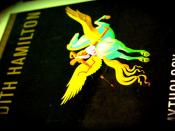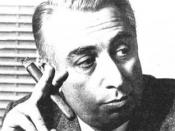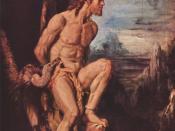How could the relationship between the histories of myth as a medium be integrated with a more general discussion of the historical evolution of media and the roles they play in human history, affairs, interests and experiences? Use concrete examples drawn from the course material as well as such sources and supporting arguments as you feel to be necessary.
When we encounter the word Myth, we usually think of stories about Goodness and Heroes in ancient times. Myth has been playing a significant role in human history for a long time. Myth is often considered simply as collections of stories pertaining to the supernatural and ugly elements, which is in oral societies. Actually, myth is more than storytelling. It distorts history by appropriating historical context. According to Barthes, myth works as a medium of communication. History myth works in both oral and written communications. Whether from an oral or a written way of communication, there should be a sign, symbol, or icon working as an interaction between people and ideas.
Storytelling myth and written myth achieve the goal of transmitting ideologies, ideas, values, and beliefs, in order to rule politics and people through religions in human history.
Myth has a much broader context and can have latent meaning that makes it valuable to any myth-creating culture. Myth comes from the Greek word muthos, which refers to the act of speaking, e.g., a type of speech-performance that demands action or commands respect (Martin p.6). Myth is a story (Segal, p.4), and it is circulated around ancient Greek society through the act of storytelling. References to familiar heroes and gods in these stories allowed people to communicate a variety of beliefs and ideas in a form that was readily accessible to all. Myth, then as now, provides a means for people to...


